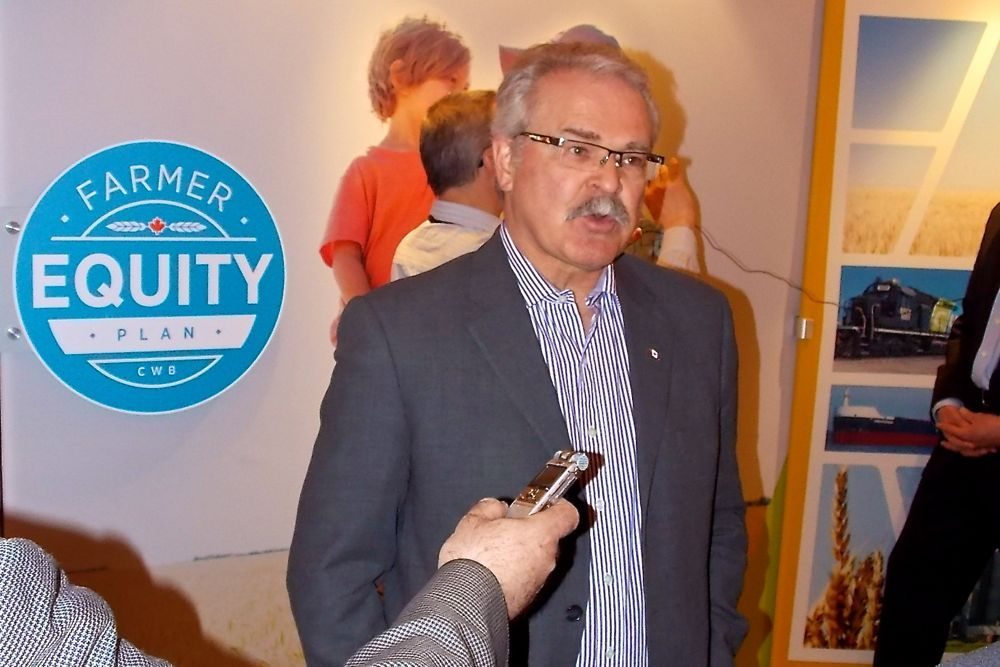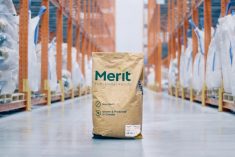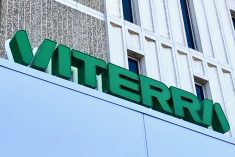While G3 Global Grain Group is set to scoop a majority stake in CWB, grain farmers will be able to hold onto some equity in the former Canadian Wheat Board over the next seven years at the least.
G3 is a new joint venture between Bunge Canada and Saudi Agricultural and Livestock Investment (SALIC) Canada, with Bunge owning the majority share. The corporation will be headquartered in Winnipeg, and the $250 million that G3 ponied up for the company will stay within CWB.
The proposed deal, which would see G3 buy 50.1 per cent of the CWB, is expected to close in July. As part of the deal, farmers would initially retain a 49.9 per cent share of the CWB through an equity plan.
Read Also

Alberta crop conditions improve: report
Varied precipitation and warm temperatures were generally beneficial for crop development across Alberta during the week ended July 8, according to the latest provincial crop report released July 11.
Farmers can’t buy shares in CWB. Instead, CWB has been tracking deliveries since August 1, 2013. For every tonne delivered to CWB, the company credits a $5 unit.
Farmers won’t directly own shares in CWB, said Dayna Spiring, chief strategy officer for CWB. Instead, their shares will be pooled into a farmers’ trust; that trust will own shares in CWB.
Three trustees, who will be appointed before the deal closes, will oversee the trust. One of those trustees will sit on CWB’s seven-person board of directors.
The farmers’ equity plan will be capped at 49.9 per cent of the current valuation of the CWB, which is just shy of $500 million, CWB CEO Ian White said. How long it will take to reach that full valuation will depend on farmer deliveries and how fast the business grows, he added.
Spiring said the equity will stay in the business for at least seven years, to grow CWB. At that point, G3 can buy the shares at full market value, without a minority discount, said Spiring.
But farmers won’t be able to hold onto their units if G3 decides to purchase them. If a farmer retires, the equity’s value will be returned to him or her; if a farmer dies, the equity will go to the farmer’s estate, Spiring said.
“Upside”
Farmers will also have liquidity if there’s an initial public offering or other liquidation event, she said. The units will be tax-free when given to farmers, but taxable once they receive a cash benefit, she added.
“Whether farmers have the ability to trade their units or dispose of their units will be a decision that will be made by the three independent trustees going forward,” said Spiring, adding they would need to follow provincial Securities Commission rules.
“If the CWB grows like we expect it to grow, farmers will participate in that upside at no cost to them,” she added.
Norm Hall, president of Agricultural Producers Association of Saskatchewan (APAS), said APAS doesn’t have an official position yet — but he voiced concerns over farmers’ inability to retain equity.
“Farmers have no choice. But the government is so excited that they’re providing this opportunity to farmers? Sure, there’s a one-time upside. But what about the long-term upside?” said Hall during an interview.
Hall said he’d like to see farmers have the option of either selling or keeping their equity in CWB. Farmers nearing retirement might want to sell in seven years, he said. “But what about the 30-year-olds that have another 30 years of farming to go? Maybe they want to participate in that upside.”
Asked why G3 is being given the option to unilaterally buy out farmers, Spiring said if the partnership between G3 and farmers is working well, G3 may never buy the equity.
“But that is an option that’s available. This is a commercial deal. And every bid that the CWB got required that there be some exit just because it’s very difficult to predict the future,” she said.
“If I was G3, that sounds like a great deal,” Dean Harder, a southern Manitoba farmer and vocal critic of CWB’s deregulation process, said at CWB’s Winnipeg event Wednesday.
At the end of the press conference, Harder asked White and federal Agriculture Minister Gerry Ritz to instead consider a model giving farmers majority control.
“What we’re hearing right now is that farmers won’t have a choice” in whether they get to keep their equity, Harder said later. “Investing in (CWB) is a lottery, basically.”
Ritz said the intent behind farmer equity is market share. “Everyone out there contracts, struggles to gain market share. This is just another way to make that happen.”
G3 CEO Karl Gerrand said he couldn’t predict what would happen in seven years. “But what I can say today is we embrace this equity component and the farmer involvement in our business. And we look to work very actively with our farmer equity holders.”
— Lisa Guenther is a field editor for Grainews at Livelong, Sask. Includes files from AGCanada.com Network staff in Winnipeg.
















